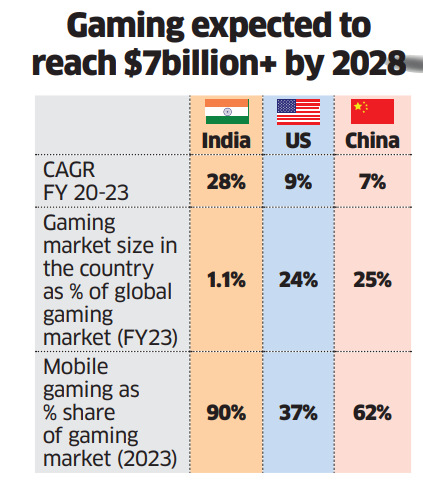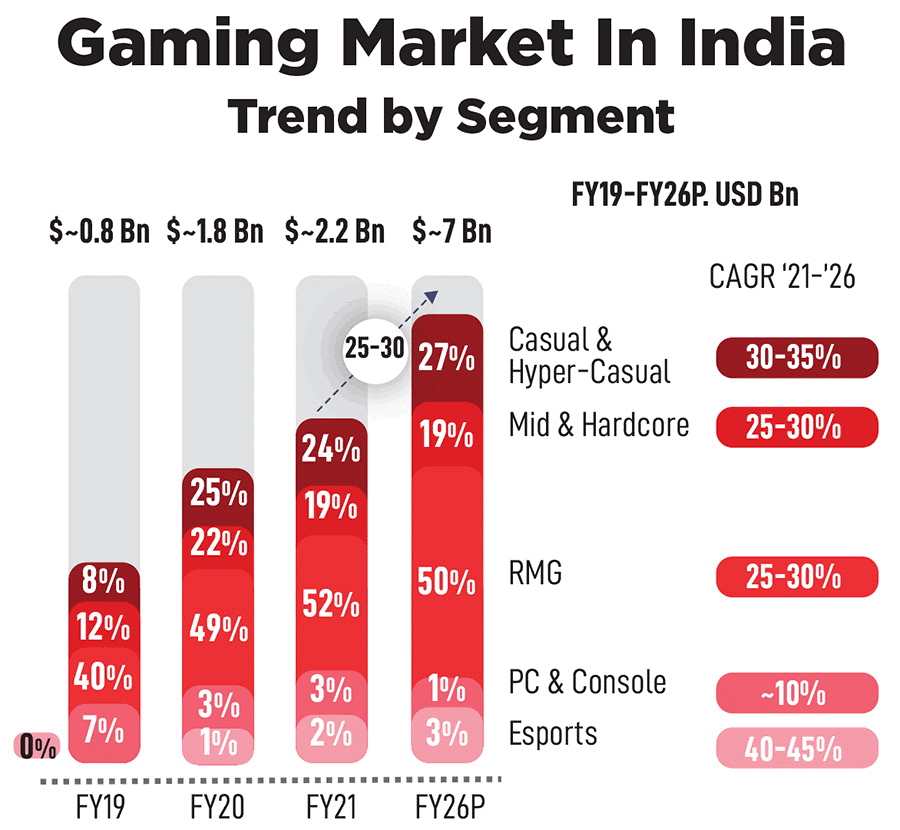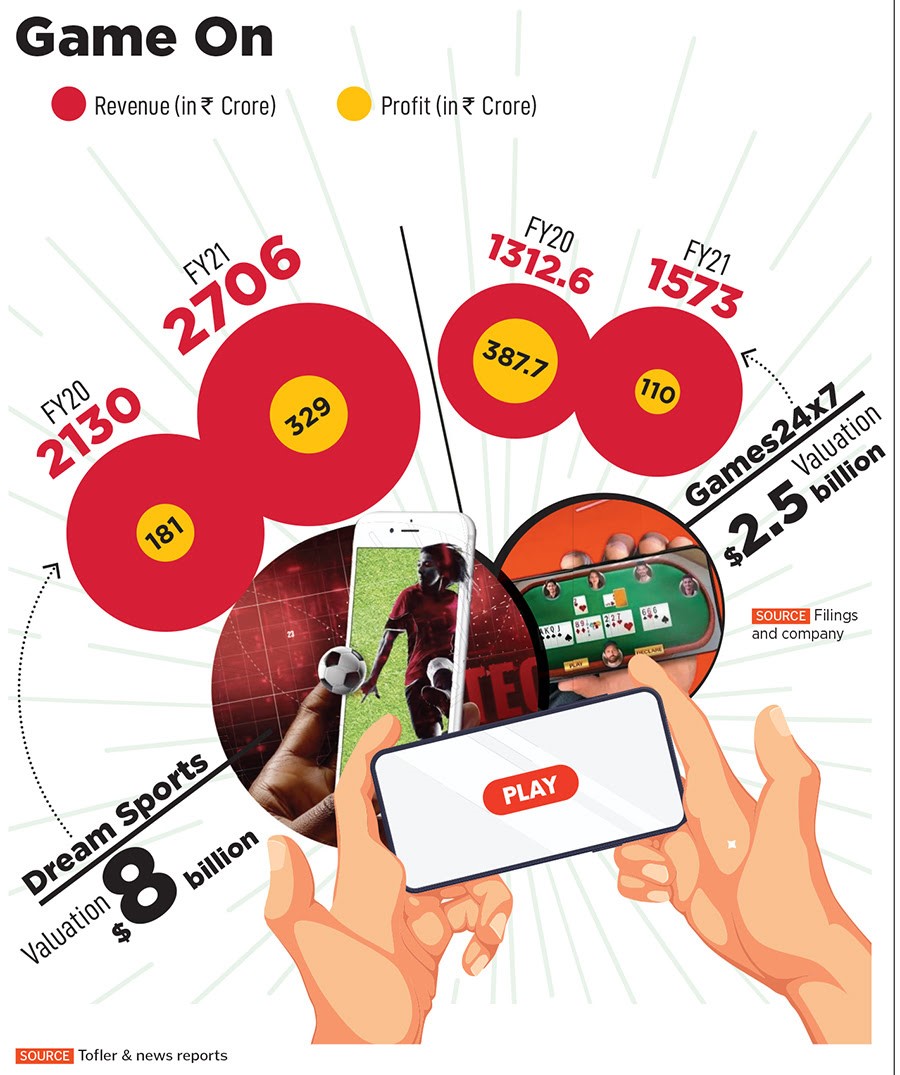Description
Daily Editorial Analysis
Editorial is based on “Getting to a new level in India’s online gaming sector” which was published in The Hindu
Introduction:
- The Prime Minister’s vision to establish India as a prominent global gaming hub has received renewed attention as he engaged with seven of the top gamers in the country.
Details of the discussion:
- The trajectory of the gaming industry and the challenges gaming Industry face, particularly on the issue of distinction between skill gaming and gambling (game of chance) was discussed.
- The discussion could pave the way for a more conducive and forward-looking regulatory environment for gaming Industry in India.
- Opportunity offered by the increasing number of games based on Indian mythology and the scope to encourage the participation of women, besides promoting innovation was also discussed.
- The players also highlighted the issue around the perception of gaming as a career in India.
Potential of gaming Industry in India:
- The online gaming industry in India increased at 28% CAGR between FY20 and FY23.


- It is expected to grow to ₹33,243 crore by FY28, with a sustained 15% CAGR.
- This sector not only attracts significant foreign and domestic investments but also generates substantial direct and indirect employment.
- India being one of growing IT hub in the world, the industry holds natural potential for India.
- The size of the global gaming industry crossed $300 billion in 2021 — more than the combined markets for the movie and music industry — the online gaming segment in India constitutes 1.1% of the global online gaming revenue. Thus, the potential for growth is large.
- According to Inc42, at present, the industry has three gaming unicorns—Dream Sports, Games24x7 and MPL. While two are highly profitable.
- Dream11 has over 150 million users, and its parent company is valued at $8 billion. Dream Sports had FY21 revenue of ₹2,706 crore.
- Games 24x7, RummyCircle, My11Circle, also have seen an unprecedented rise in number of users.

Factors for the Rise of the Gaming Industry in India
- Increased Smartphone Penetration: India has witnessed a significant increase in smartphone users, especially in the younger demographic, which has fueled the demand for mobile gaming. For instance, as of 2021, India had over 700 million smartphone users.
- Affordable Internet Access: The availability of affordable internet plans and the expansion of 4G networks have made online gaming more accessible to a wider audience. This accessibility has led to a surge in online multiplayer games like PUBG Mobile and Free Fire.
- Rise of E-Sports: The emergence of e-sports tournaments and leagues has gathered immense popularity. Games like PUBG Mobile and Call of Duty Mobile have seen massive participation from Indian gamers in global tournaments.
- Investment in Gaming Startups: Indian gaming startups have received substantial investments, leading to the development of high-quality games. For example, MPL (Mobile Premier League) raised $95 million in funding in 2020 to expand its gaming platform.
- Cultural Shift Towards Gaming: Gaming is no longer seen as just a recreational activity but also as a competitive sport and a career option. This cultural shift has encouraged more individuals to pursue gaming professionally, leading to a thriving gaming ecosystem.
- Government Support: IT (Intermediary Guidelines and Digital Media Ethics Code) Rules 2021 have provided a regulatory framework for online gaming, and self-regulatory bodies and the Animation, Visual Effects, Gaming, and Comics (AVGC) Promotion Task Force have been established to promote the industry's growth and development.

Challenges of Gaming Industry
High tax regime : The Group of Ministers (GoM) recommend increasing the goods and services tax (GST) on online gaming, casinos and race courses. A GST of 28 percent is applicable on games of chance, and the skill gaming industry pays 18 percent GST on the commission or gross gaming revenue (GGR), the fee charged by online gaming operators.
Regulatory challenge: The lack of regulatory stability has discouraged the online gaming sector and many investors are uncertain about the future of the gaming in India.
- Laws and regulations governing online gaming, has different in different states. For example, while some states like Telangana and Andhra Pradesh have banned certain types of online games, others like Karnataka have a more liberal approach.
Content Localization: Creating localized content that caters to diverse linguistic and cultural preferences across India can be a challenge. This includes translating games into regional languages and incorporating culturally relevant elements.
Competitive Global Market: Indian gaming companies face stiff competition from global giants with vast resources and established market presence. Standing out in this competitive landscape requires innovation, quality, and strategic marketing.
Cybersecurity Concerns: With the increase in online gaming, cybersecurity threats such as hacking, data breaches, and cheating in games have become prominent. Ensuring robust cybersecurity measures is crucial to maintain player trust and safety.
Way ahead
- Regulatory Clarity: Effective implementation of self-regulatory bodies mandated by the IT Rules of 2021.
- Promoting Gaming Development based on Indian Culture and Mythology: lincentivizibg game developers to make games based on India's rich cultural traditions and heritage, mythology, and folklore. "Raji: An Ancient Epic".
- Alternative Funding and Investment Models:Crowdfunding, venture capital investments, and public-private partnerships to encourage game development startups.
- Promotion of E-Sports: Further promoting e-sports through organized tournaments, leagues, and events can nurture a competitive gaming ecosystem and provide opportunities for Indian gamers to showcase their skills on a global platform.
- Innovation and Research: Encouraging research and development initiatives focused on emerging technologies such as virtual reality (VR), augmented reality (AR), and artificial intelligence (AI) can drive innovation and create new opportunities within the gaming industry.
Conclusion: The online gaming industry forms a critical part of the Digital India vision and initiative. They must be nurtured by providing required support, regulations and financing.








